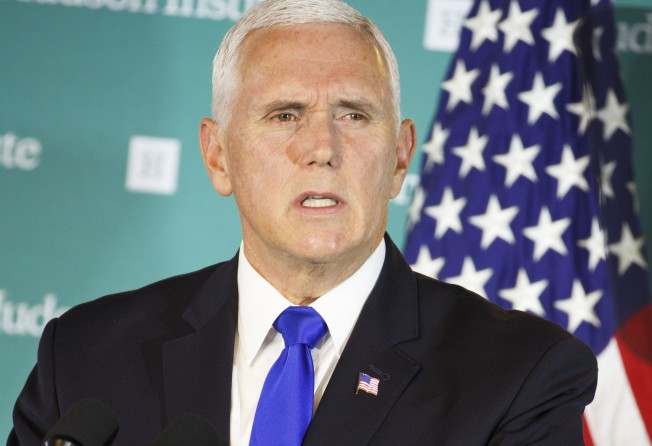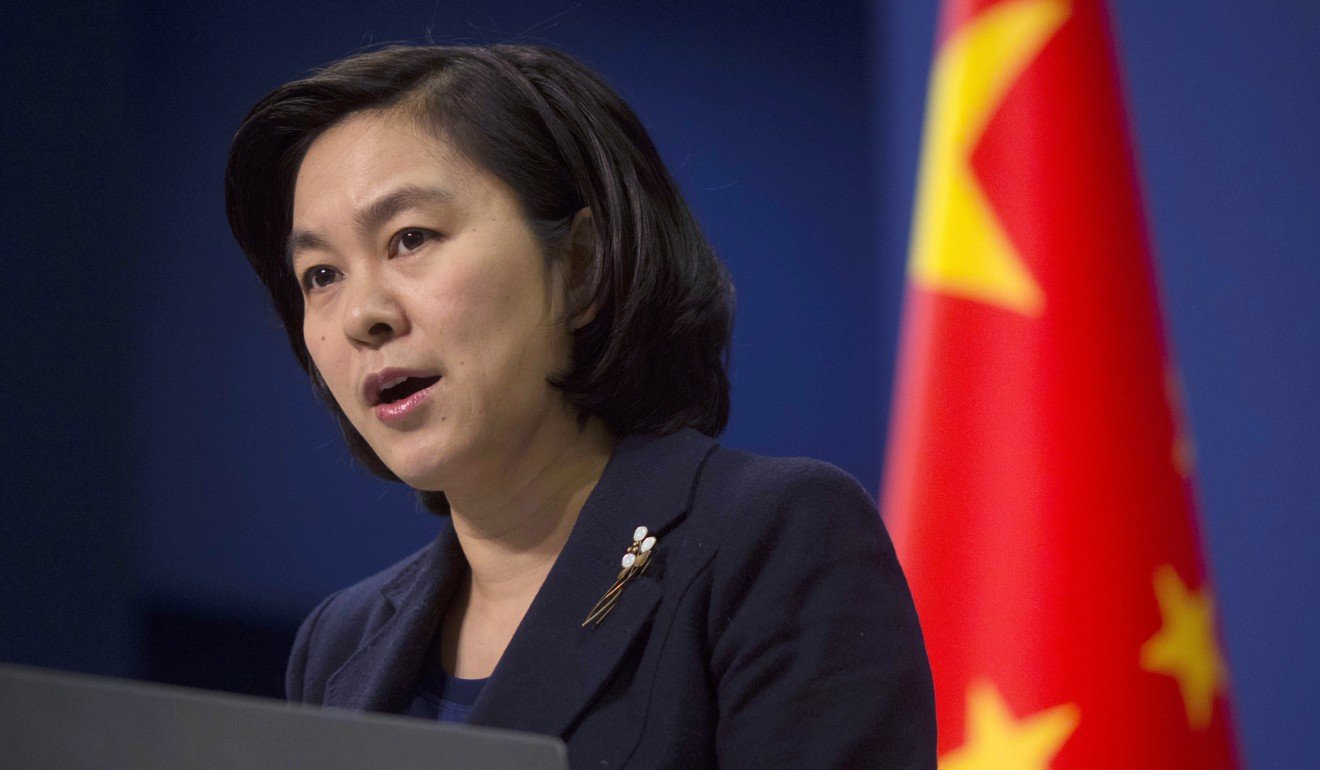‘US could sell its aircraft carriers to China to cut deficit’ – Beijing rebukes ‘tired’ Mike Pence
Official news agency Xinhua runs combative opinion pieces in response to US vice-president’s accusations

Chinese state media rolled out a slew of combative opinion pieces in response to US Vice-President Mike Pence’s accusations against Beijing last week, as rhetoric intensifies in the widening strategic conflict between the powers.
A signed commentary from People’s Daily, the Communist Party’s mouthpiece, attacked Pence for remarks he made last Thursday at the Hudson Institute, a conservative US think tank, targeting China for its foreign policy, trade practices and claims about meddling in US elections.
The nearly 5,400-word screed by “Zhong Xuanli”, a pseudonym used by the Central Propaganda Department’s Theory Bureau, sought to refute the vice-president’s address point by point, including a remarkable proposal for Beijing to buy four US Gerald R. Ford-class aircraft carriers to help close China’s trade surplus with the US.
“The problem is not that China does not buy, but that the United States does not sell,” the piece argued, referencing the escalating trade war between the two countries. “For example, is the US willing to sell its Ford-class aircraft carriers? If one piece is priced at US$15 billion and the US sells four to China, we can immediately narrow the trade gap by US$60 billion.”
“Pence even said that much of China’s success was driven by American investment in China and that the US ‘rebuilt’ China over the last 25 years – what a huge joke!”
Official news agency Xinhua ran at least eight nationalistic opinion pieces, penned by authors in academia, business and government, that likewise took an indignant tone, with headlines reading: “Mr Pence must be tired”, “Uncle Sam should not have amnesia” and “China’s development did not come from other people’s charity or favours”.
They followed Pence’s fiery speech, where he said that US President Donald Trump would “not back down” in the face of Chinese efforts to shift American public opinion and policy.
“China has initiated an unprecedented effort to influence American public opinion, the 2018 elections, and the environment leading into the 2020 presidential elections,” he said. “China wants a different American president.”
Chinese foreign ministry spokeswoman Hua Chunying hit back by describing Pence’s speech as making “unwarranted accusations” and “creating something out of thin air”.

In similar fashion, the nationalistic commentaries on Thursday did not mince words. A piece by Sun Jinsong, deputy director of Wuhan University, sarcastically thanked the vice-president for providing an example of how not to write a doctoral thesis.
“I don’t know how Vice-President Pence’s alma mater taught its students, or what kind of university his speech-writer graduated from,” he wrote. “If students ask me why they need to avoid illogical arguments or obvious mistakes, when despite this Pence has still become vice-president, I really will not know how to answer them.”
In another, Li Youlong, an education official in eastern Jiangsu province, slammed the way Pence characterised the Korean war as an extension of China’s pursuit of authoritarian expansion.
“This is a serious violation of historical facts,” he wrote. “The US vice-president should take make-up lessons on history.”
In recent weeks, China and the US have seen their escalating trade war – with billions in tariffs levelled on both sides since July – widen into a broader strategic conflict that some scholars have likened to a new cold war. Pence’s speech accused Beijing not only of unfair trade practices, but ramped-up propaganda efforts abroad, aggression in the South China Sea, systematic imprisonment of its Muslim Uygur minority in re-education camps, as well as “debt diplomacy” through China’s “Belt and Road Initiative”.